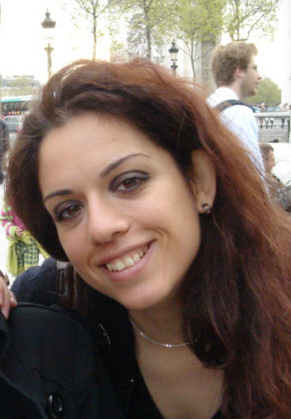
Lebanese journalist and blogger Lelia Mezher was one of several Lebanese bloggers [1] who worked round the clock to keep the world informed about the crisis which rocked her country when different factions clashed in Beirut. Global Voices Online caught up with Mezher, who is involved with News Lab [2], in this quick interview.
* Who is Lelia Mezher? Occupation? Experience? Interests? Fears? Hopes?
I'm a Lebanese journalist at L'Orient Le Jour, a Lebanese daily newspaper, written in French. Actually it's the only French daily newspaper in Lebanon. I studied law and specialised in Internet Law and then did political science. I studied law in Lebanon then moved to Paris for my Internet Law (Paris I – La Sorbonne ) diploma and my Political Science diploma (Paris 2 -Assas).
After numerous internships in Paris between 2003 and 2006 (legal department at the Ministry of Economy, eGovernment agency affiliated to the Prime Minister bureau and an internship at Clifford Chance Law Firm), I didn't find a job their so I applied for an internship at L'Orient Le Jour. I started in July 2006, a few days before the Hezbollah-Israeli war [3]. I got the job in August 2006.
My worst nightmare right now is the lack of freedom. With the Hezbollah [4] imposing itself more and more, I'm afraid press freedom will dramatically drop, as well as women's freedom. I really hope Lebanese will get to a point where they learn from their mistakes and stop repeating them every once in a while. No religious community can win over the other – Lebanon is a country of diversity. On a more personal level, I hope I can evolve in my career and one day be proud of my country, and stop feeling that the government is never there to look after you.
* What is Newslab [2] about?
NewsLab was a Canal France International – Anna Lindt foundation initiative. It’s my editor-in-chief Nagib Aoun who told me about it. A 10-day reunion in Alexandria to create a blog. When we met, 20 different women from 10 different countries, its was not easy to get along. But today I can say that we succeeded and we know what the blog is for. It allows u to remain free, especially in the Arab world. In Lebanon, we are free to write or say whatever we want, unlike in Egypt or Syria. So for me this blog had to be first and foremost for the Arab women. But not all of them write. Some completely abandoned the blog.
* What contribution have Lebanese bloggers had on voicing the concerns and fears of citizens on the ground during this current crisis?
In Lebanon, bloggers allow us to have an independent point of view of the situation since every political party has its own media here. There's no independent TV or newspaper except maybe L’Orient le Jour. Blogs were first considered as a threat to newspapers. Today they complete each other and blogs have become part of the sources of information on which you can rely.
* How has the Lebanese media dealt with covering the current crisis and how different was that coverage from what citizen journalists wrote on their blogs?
Strangely enough, not all the media was biased this time while covering the events. Journalists in many cases were indeed the voice of the people. One same impression of disappointment and sadness was everywhere. A big number of journalists managed to express the people’s feeling, unlike before. Maybe it’s the fear of a new civil war who created this reaction among the journalists.